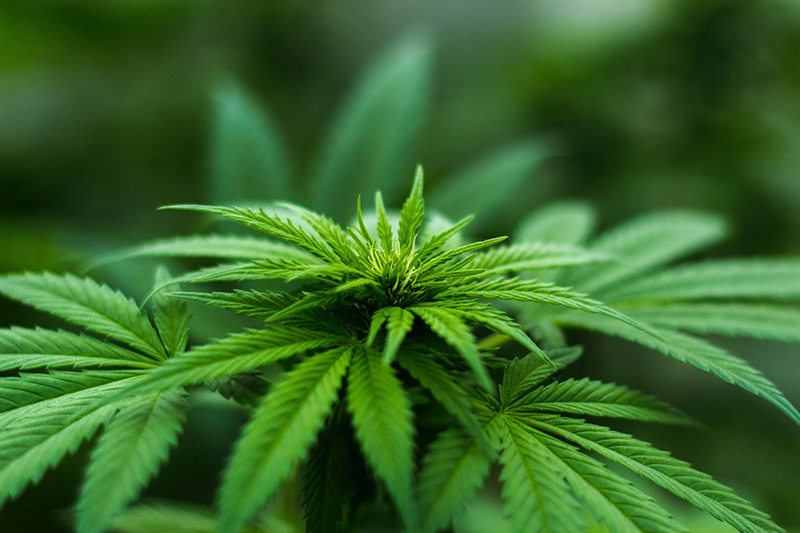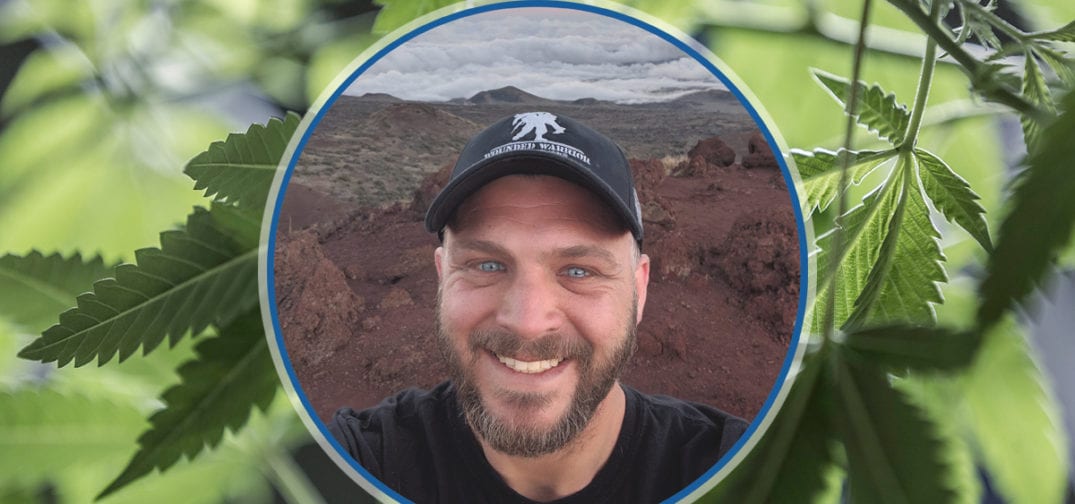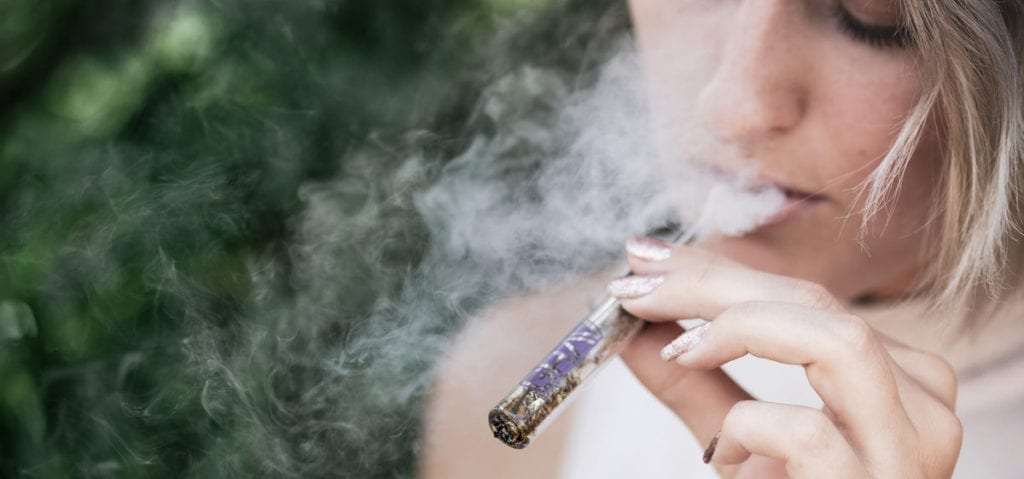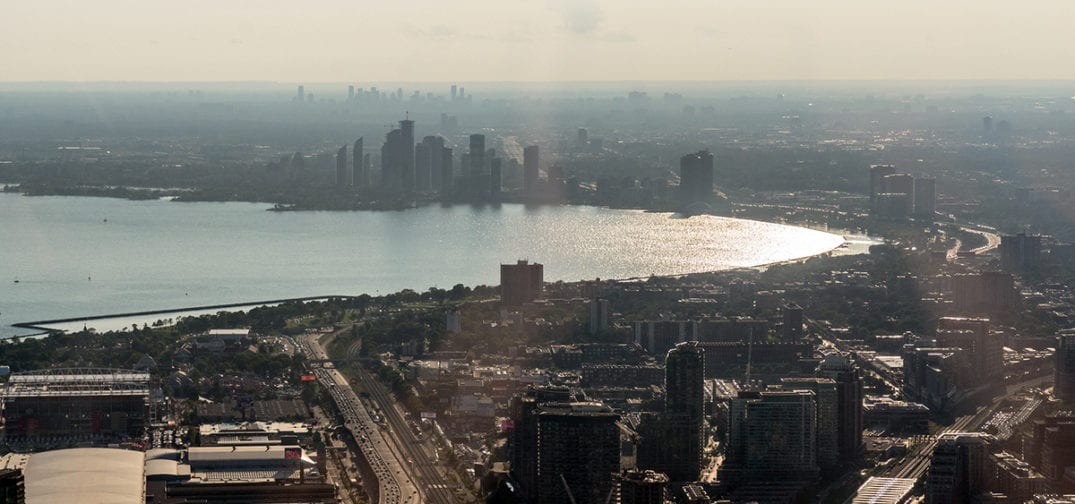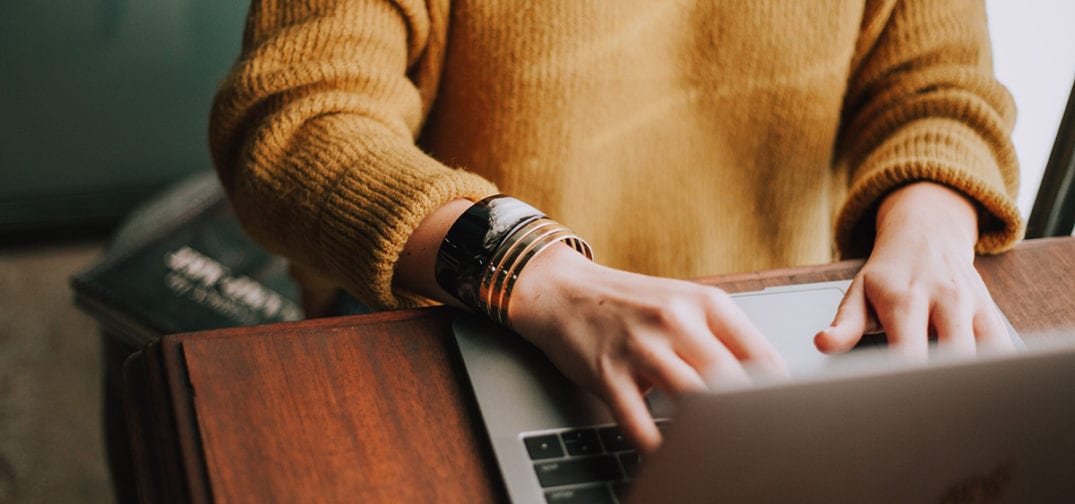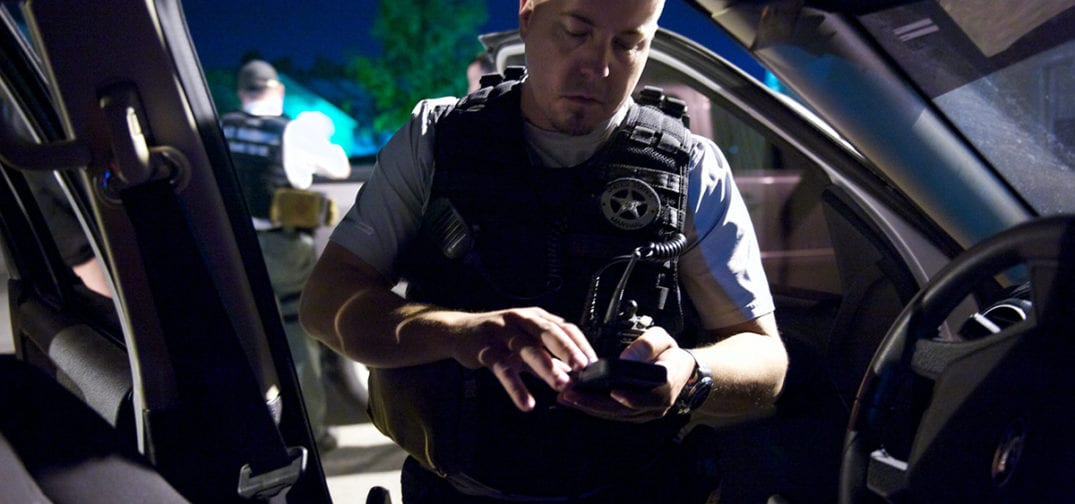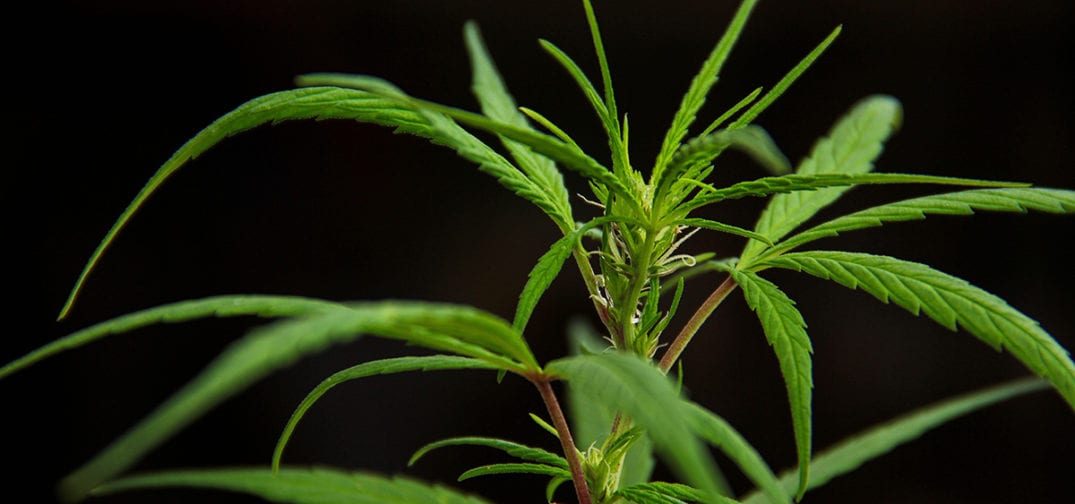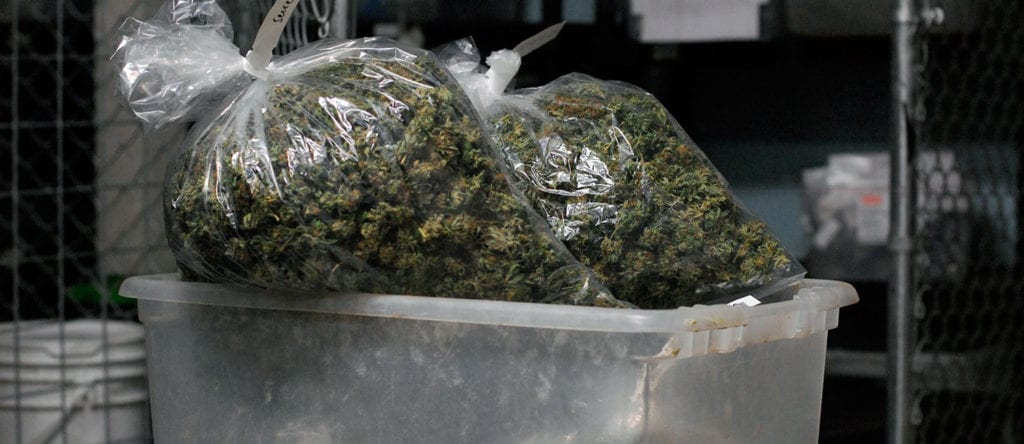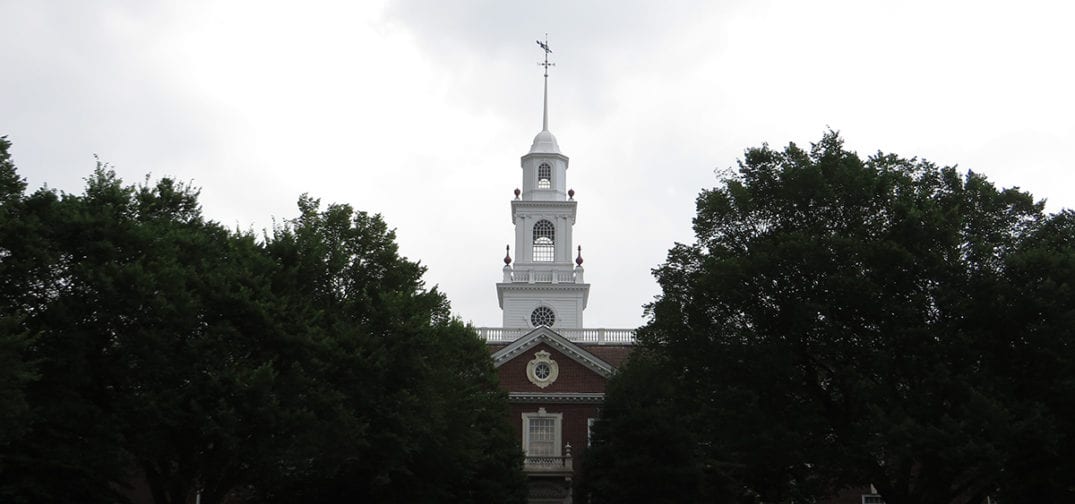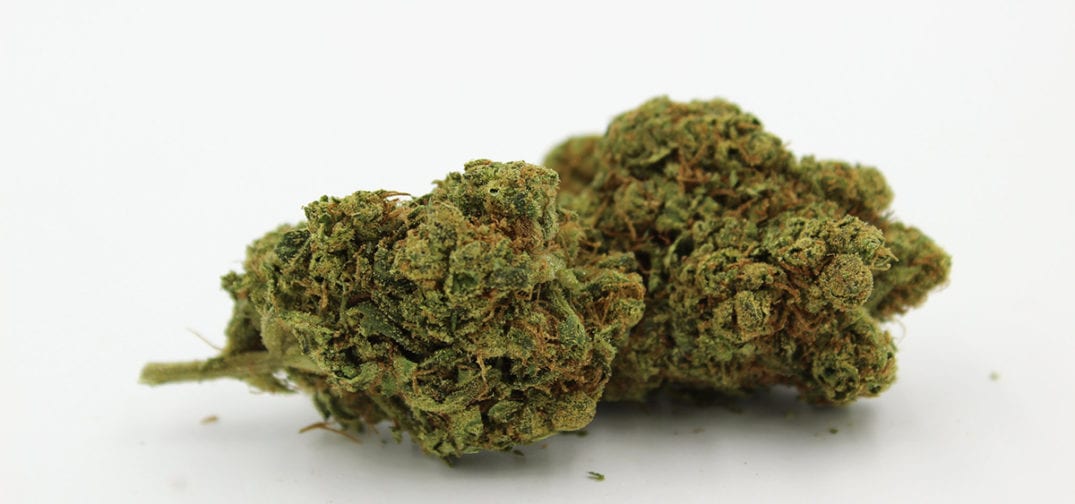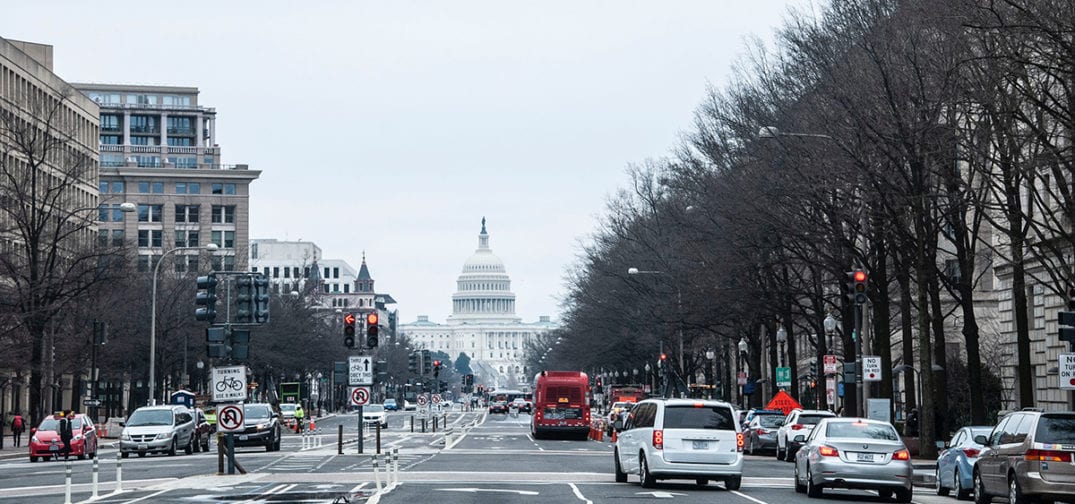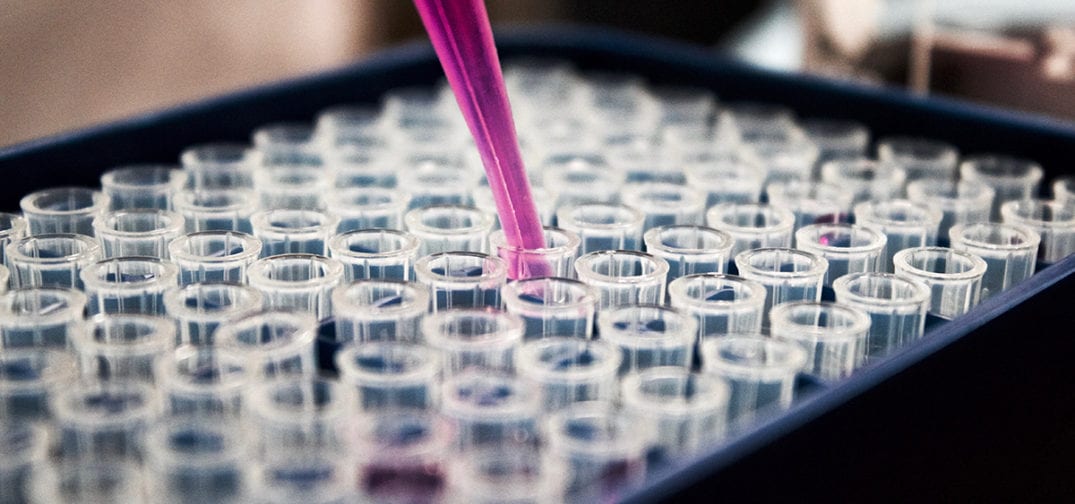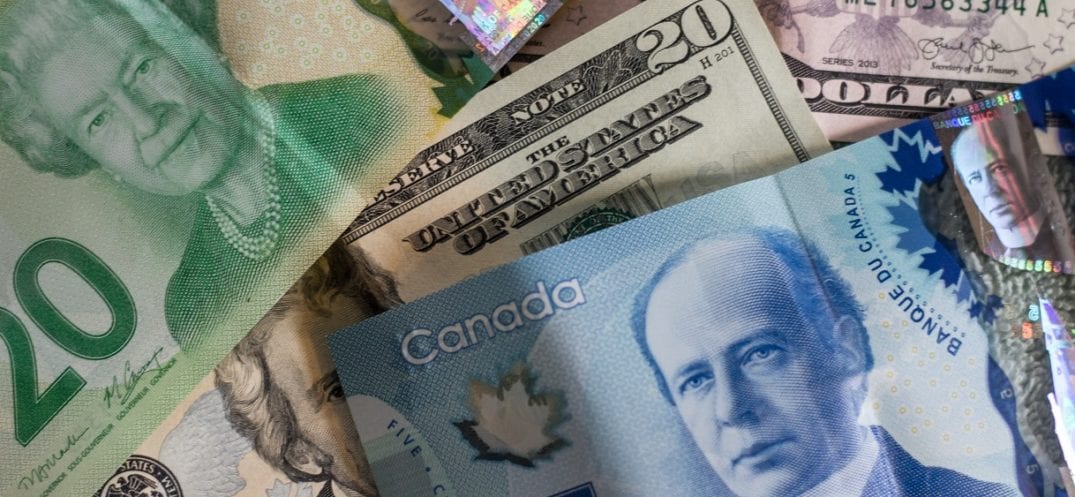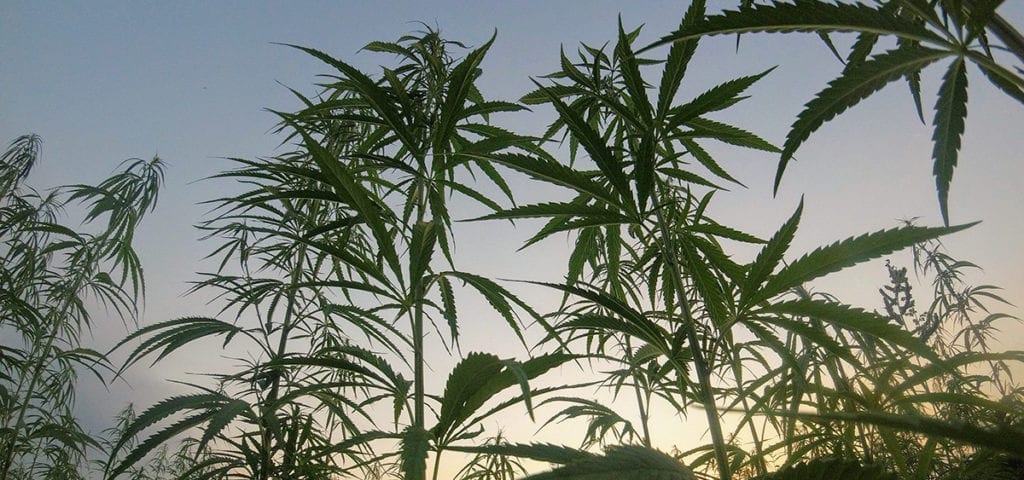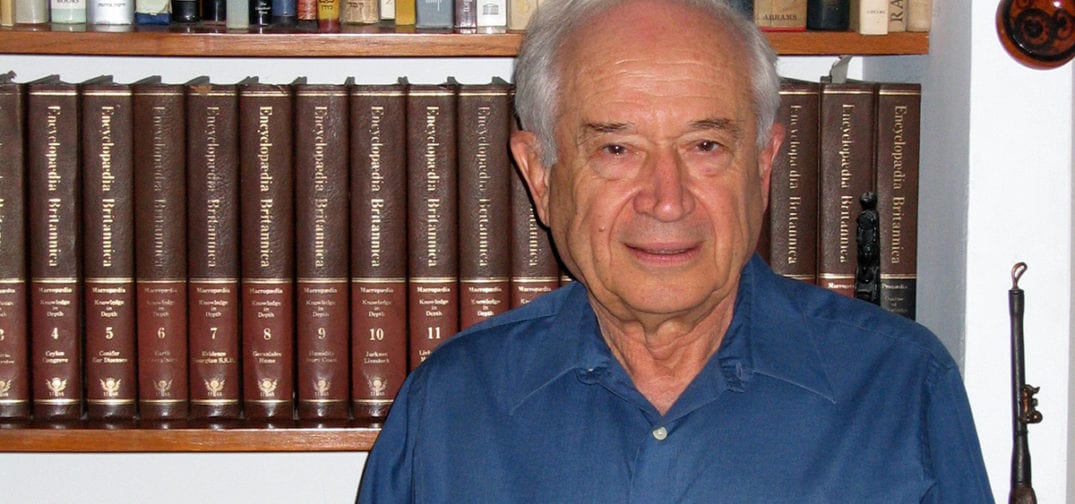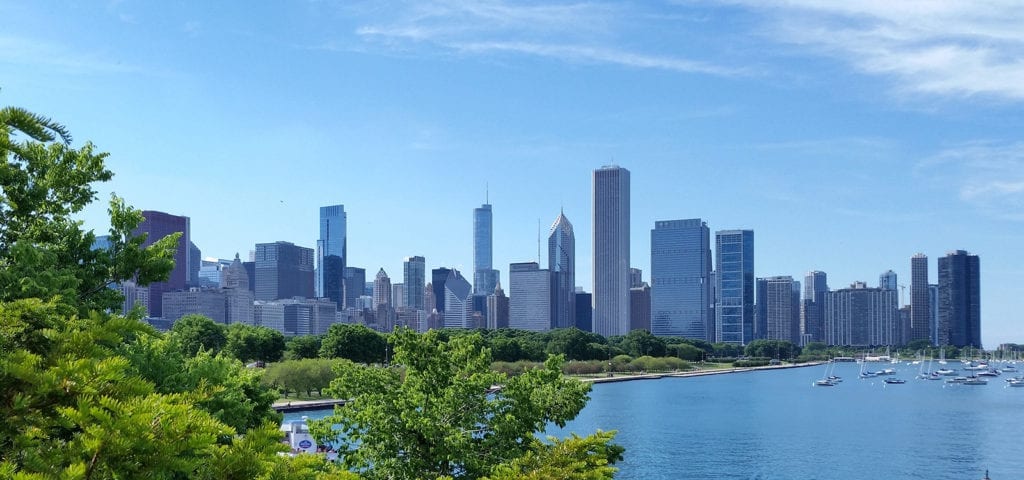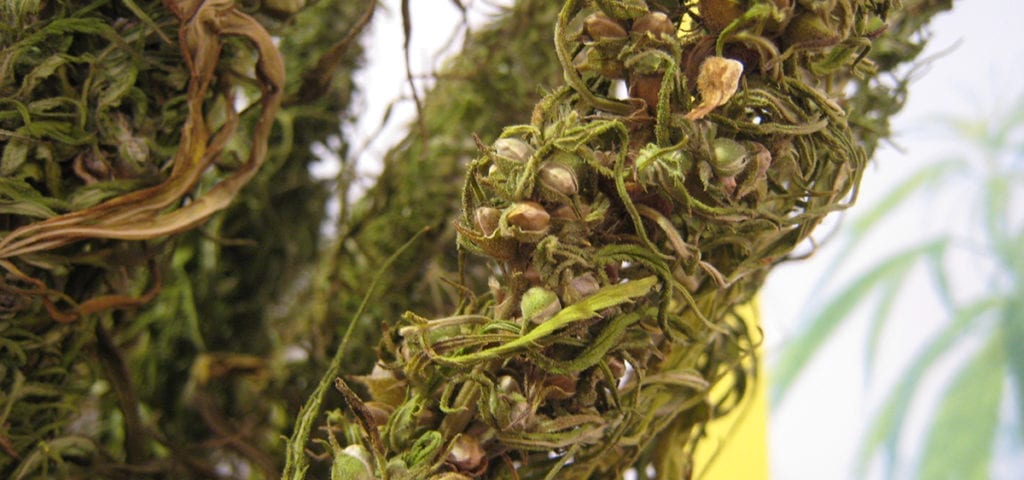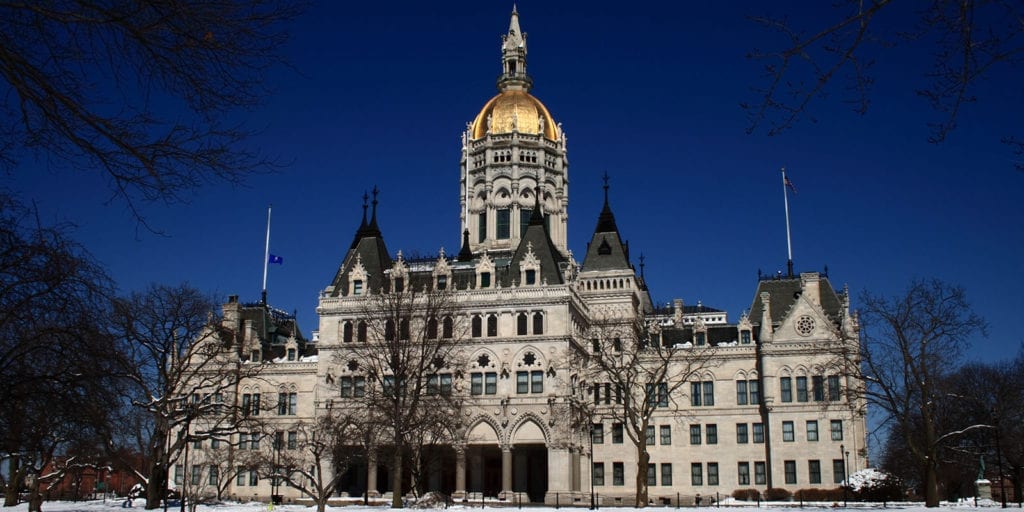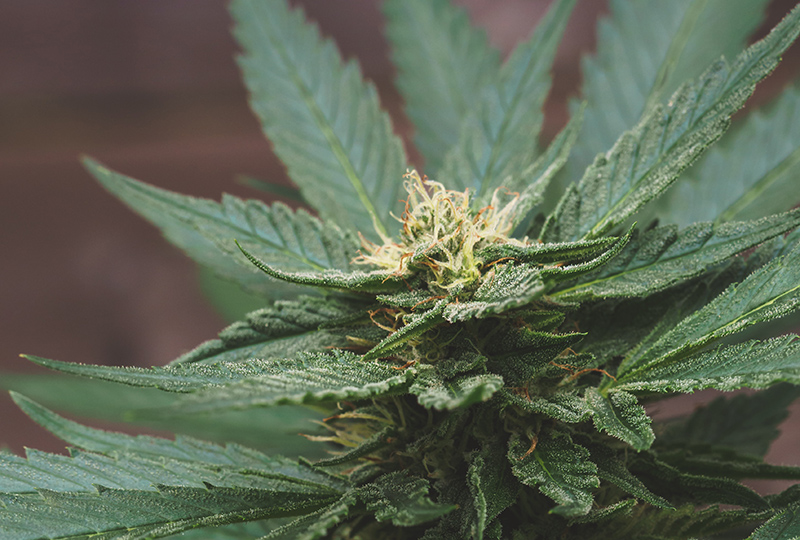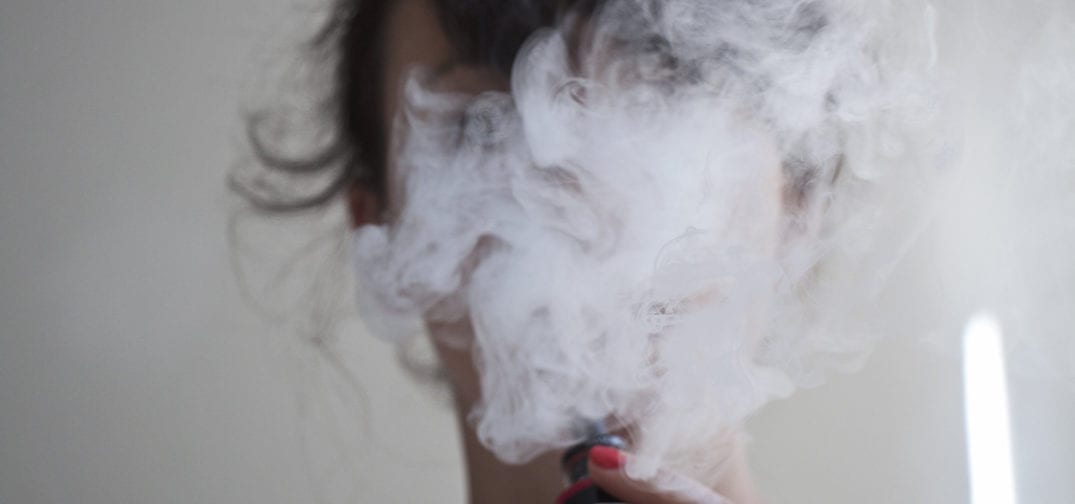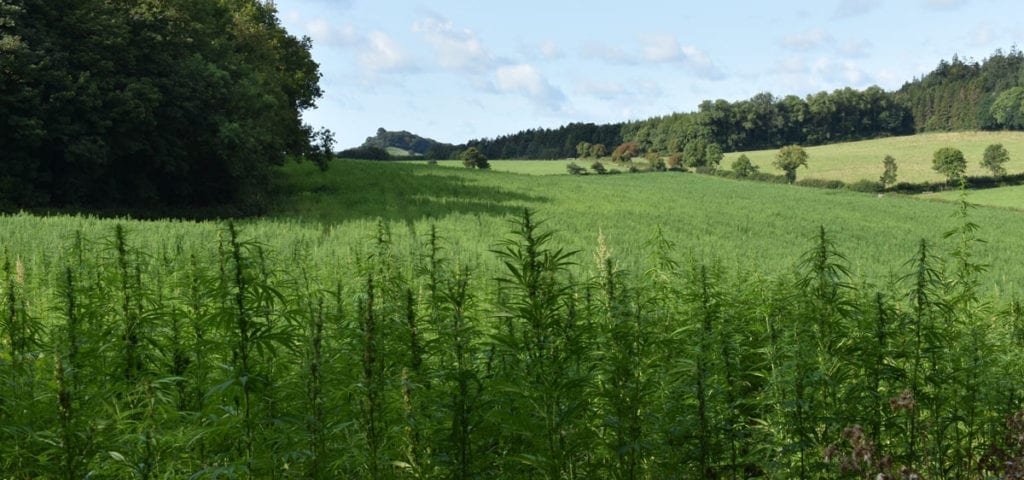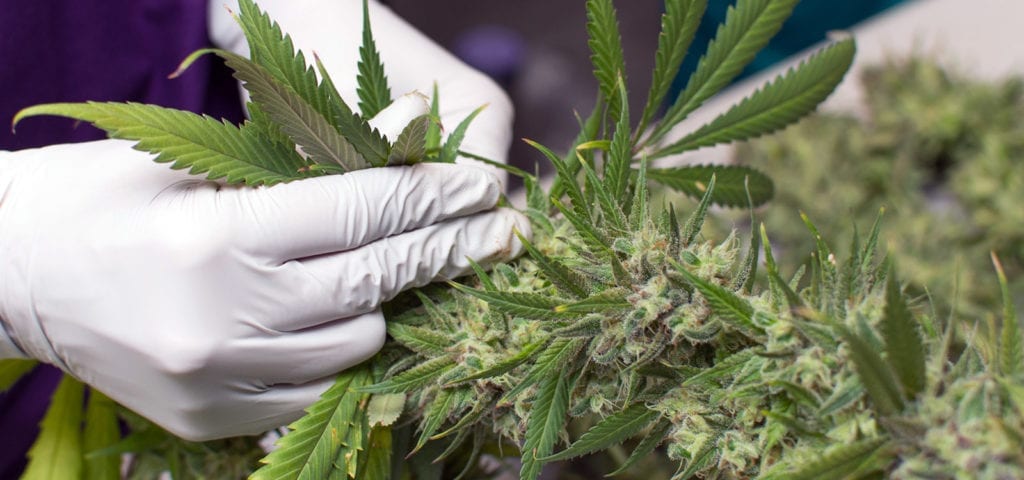Jason Ambrosino recently joined our podcast host TG Branfalt to talk about the New York hemp and cannabis markets, how CBD’s influence has benefited countless military veterans (including Jason, himself), and more. The interview covers the public perception of hemp and cannabis and what the Veterans Hemp Market does — and what other industry operators can do — to help educate the masses and break the ongoing stigma around cannabis use.
Tune in to the interview below, or scroll further down to check out a full transcript of this week’s Ganjapreneur.com podcast episode!
Listen to the podcast:
Read the transcript:
Commercial: This episode of the Ganjapreneur podcast is made possible by 420 friendly service providers in the Ganjapreneur business directory. If you need professional help with your business, from accounting to legal services to consulting, marketing, payment processing or insurance, visit ganjapreneur.com/businesses to find service providers who specialize in helping cannabis entrepreneurs like you. Visit the Ganjapreneur business directory today at ganjapreneur.com/businesses.
TG Branfalt: Hey there, I’m your host TG Branfalt and thank you for listening to the ganjapreneur.com podcast where we try to bring you actionable information and normalize cannabis through the stories of ganjapreneurs, activists, and industry stakeholders. Today I’m joined by Jason Ambrosino. He’s a former army officer. He’s the owner of Cohoes, New York-based Veterans Hemp Market. Cohoes is notably a former manufacturing town outside of Albany. He’s a vocal cannabis advocate who this year launched his company hoping to provide CBD for the everyday hero. I’ve been fortunate enough to have some of his pre-rolls that I’ve found at a local market up here in the Adirondacks. So, I’m looking forward to this. How are you doing this morning, Jason?
Jason Ambrosino: Good, Tim. Thanks for having me.
TG Branfalt: I’m super stoked. It’s not really every day that I actually get to talk to somebody whose product I’ve actually used because I don’t live in a legal state and I talk to a lot of THC entrepreneurs. But this is about you, man. Tell me about yourself. How’d you end up in the cannabis space? I’m sure it’s a real interesting story judging by your background.
Jason Ambrosino: Well, it really is. I got out of the army, retired out of the army in 2014, medically retired actually. Years prior had gotten blown up and I had a variety of health problems, PTSD, the normal charade of problems that most veterans face. And when the army was done with me, when the army is done with anybody, they kind of say, “Okay, go find a new life.” And that’s pretty much how it feels because that’s your family, that’s … everything you know is tied to that organization.
So, when you’re given seven months and say go figure it out, well can you start figuring things out? And what you find out is, it’s tough when you get out and there’s a lot of stuff you have to deal with and cope with. And jobs get a little bit more difficult because people in the civilian world aren’t necessarily understanding of what veterans go through.
And I said, there’s got to be a better way here. And I started doing a lot of reading and I read this book. I’m trying to remember what the name of it is here. I’ll have to give it to you at the end of the program because it’s not coming to me at minute. But I read this book and it had a lot to do with the use of cannabis, the use of different types of psychedelics for treating these types of problems, PTSD related issues, psychological things that you deal with as a veteran. And in this book I started reading about cannabis and opened my mind to it, of which at the time was kind of back and forth. I didn’t mind people doing what they did, but I certainly didn’t have the knowledge base that I have now. And for years I … for about a year and a half, I just filled my mind up with this information and said, well, you know, it’s time. It’s time to try this and see how it helps me.
And I didn’t know where to turn. I’m in the same state as you. It’s not a legal state. And honestly, the medical program in New York state is … it needs work. It needs a lot of work. So, I did what anybody did … would do. I went out and found someone and I got product for myself and I started medicating. And the results were immediate. I said, this is … I feel better. I’m getting … the more and more I use it, the more I’m dialing in … the more I’m dialing in my dosage. And Oh, by the way, now I’m starting to notice that sensory stress is going down since the anxiety’s going down. Oh, well the pain is starting to go down as well.
And it all just kind of clicked at the same time. Like, whoa, we’re missing the picture here. So, I was already a cannabis supporter. And then I was … had issues with regards to always having to be in that stoned state. And anyone who depends on cannabis for medical reasons, they understand what I’m talking about. And it’s a constant battle of building a tolerance up so that you can increase the amount of THC enough to get to the pain threshold that you’re trying to deal with. And it’s a constant battle.
And I started looking into this side of it and said, well, what was actually going on with these components or these cannabinoids that are inside this product? And how is that affecting me inside my body? And it was just at the time where we were really starting to dig into the CB1, the CB2, and now just recently they believe there’s a CB3 receptor. And it just made sense to me that well, CBD should accomplish all these other things and all I got to do is treat it exactly like cannabis so that I’m getting the full range effect of the cannabinoid profiles, your entourage affects, your terpene profiles, which is … our slogan is, we’re about the flower.
And over the next couple of years I started researching the CBD space and then everything just kind of came to a head in 2018 with the farm bill. And I was already treating myself. I had already had pretty much all the contacts I needed to have and I saw where the market was going. And we knew in 2014, with some of these other companies like Hemp Works that were popping up and they just weren’t doing the right thing. They were in it to make money and take advantage of the situation. They weren’t there to help people and provide them with good medicine. Because the idea that hemp and cannabis and marijuana, it’s all the same thing, it’s just the difference of something being sour or sweet. It’s a profile inside that plant but it’s the same plant. That was like earth shattering to a lot of the people we spoke to.
And that’s how we get to 2018 and saying we need to expand this because it’s helping me, it’s helping my friends and more veterans need access to this. And if they don’t have to get bogged down by the worry of being constantly stoned and they can engage in this and it can help them, then there’s … not only is there a huge market here, there’s a huge amount of people that need to be helped.
TG Branfalt: So, how do you go from, an officer in the army … I mean, that’s just a massive undertaking and I mean, anyone that I’ve spoken to about it, they talk about how impressive the person has to be to get to that point. How does that experience drive your mission and what skills translate from that role to the cannabis space?
Jason Ambrosino: It’s always difficult to figure out what skills transfer to any space out of the military because it’s such a niche thing that we do. But I would say … let me answer this by saying how that has helped me. Because being in the military, particularly being an officer and having a successful career when I was in the military, has helped me gain clout, I should say, with a lot of people that would otherwise dismiss the idea of cannabis as something that we should have in our everyday lives.
And I hope I don’t confuse your listening audience too much because I’ll refer a lot of times to cannabis rather than just CBD because at the end of the day it’s the same plant. And I would say that the willingness to drive on regardless of anything else that’s going on around, you’ve got to kind of drown out the noise and keep pushing forward. But the respect that I had received when I was in the military and I received as a veteran, and because I was an officer has just allowed a lot of people who would otherwise have dismissed this to come in and say, “Hey, maybe there’s more something to this. Maybe I should sit down and listen. Maybe I can open my heart and my mind and learn something that I didn’t know.” And that’s what we’ve seen lately, in the past six months.
It’s been overwhelming to see, you know, the Baptist minister coming up to the table at one of these events we do and saying, “Well, you know what? I want to just forget everything that I’ve ever been taught. Because for 70 years I was taught that this is wrong and bad. And I want to hear what you have to say because clearly you guys are doing something right where …” It goes back to the veteran suicides, right? Obviously we’ve got a problem. We’re doing something wrong when 22 veterans are killing themselves every day. So, I think people are finally looking for solutions to that. And the military has given us a mouthpiece or a window or a doorway to to bring this information to these folks.
TG Branfalt: I mean, that’s super interesting. And I’ve spoken to several other veterans who have launched companies, NEVA comes to mind, that have said the same thing. So, it’s interesting to hear you echo sort of that … what I heard from them a few months ago.
And you mentioned the suicides and I mean, we have to sort of partly attribute that at least to federal policy, the VA, you cannot get medical cannabis if you are in the care of the VA. And there’s obviously a prohibition if you are active duty military, you can’t consume cannabis. What do you think of all of the sort of federal policies that have been launched and introduced and kicked back, right? Defeated. Which one do you think might help veterans most as it relates to cannabis, CBD, THC, especially dealing with PTSD?
Jason Ambrosino: It’s a tough question because it’s almost like we’re so far away from a solution with regards to the VA and how they handle veterans with cannabis that it’s hard to even start the conversation. Because federal prohibition essentially precludes them from doing anything with it. Because the minute that they say, okay, well it’s okay for veterans, now, federally, we still have this thing sitting on schedule one. It doesn’t work like that in the federal government. You can’t have it one way and have it the other. It has to be consistent policy across the board.
So, really we got to back up and say, okay, what do veterans need? What’s going to help them? And then the answer is going to be, well, really it’s a self determining thing where you’ve got to take the time to dial in what’s going to work for you. And it’s not necessarily going to work for everyone. And doctors and psychiatrists, they hate to hear that. They hate that. They hate the fact that they can have two patients that have the exact same conditions and they can use cannabis and one succeeds with it and one doesn’t. But one still succeeded with it. So, rather than dismissing it all together we say, okay, well this is an option and if it works it works. Rather than saying, okay, well these are the 47 different psychotherapeutic drugs that we’re going to put you on. And, oh, by the way, you’re going to feel like a zombie for the rest of your life.
There’s a lot of bad information out there with regards to veterans and cannabis. I recently had a gentleman come up to me. He wanted to believe he knew what he was talking about right now in the team, and the reason he couldn’t use cannabis was because he would lose his VA benefits. That’s just simply not true. The VA is not going to strip your VA benefits away from you if you have decided that you’re going to use cannabis. They’re not going to pay for it but they’re not going to strip your VA benefits away from you. If they’ve got you on a whole lot of painkillers, a lot of opiates, yes, you’re going to be under a larger microscope because they want to make sure that one’s not potentiating the other because we know that there’s things that can happen when these things are mixed. So there’s a reason for it. But they’re never going to come up to you and say, “You know what, this is working for you but we’re going to take away all your benefits.” It’s just not the way it works.
That’s where costs comes into it. And you made a comment, well, what’s going to work for you? Is it CBD? THC? What’s it going to be? And I think the answer is always, it depends. We may find that we can get a one-to-one strain, which … one part THC to one part CBD and that’s going to work amazingly well for anxiety but to handle your night pain at night, to handle it so you can sleep through the night, you might need something that’s ten parts THC and one part CBD. All of these kinds of change depending on what we need.
So whatever the solution is and wherever we go with it … And this is nationwide, state by state, the CBD market and the THC market, and they need to grow together. They need to be dealt with policy together at the same time. And we also have to go back and we have to wipe our minds of the way that we’ve been taught to think about medicine because, yeah, this is a medicine, but at the same time it’s also a plant. It’s an herb, and we have to go back and we have to look at, we’ve got all these other herbs that are in existence and we know they have far-reaching effects, and they’re not treated like cannabis because they’re not mainstream. I mean, that’s the only reason. It’s simply doesn’t make much sense. I don’t think it makes much sense to anyone.
But you have all of these little craft markets, all these little craft niche industries, that are popping up. Then you’ve got big states, like New York, for example, that wants to hold everything consolidated and essentially … don’t want you to grow your own. They don’t want you to do any of that. Well that’s the old pharmaceutical industry mind, because the idea is: well, if we have all of our plants that are grown all the same way, they’re all the same strain, then we know exactly what the product is that we’re going to get going in from the beginning and out to the end. But we know that cannabinoids don’t work that way, and that variety is basically the spice of life because a Trainwreck strain that’s working for you one day might not work for you three weeks down the road. You might have to switch to a Pineapple Express.
And those varieties have to be out there and they have to be available to you. And you have to know that at a certain point in time you’re going to have to bring in some different variety in order to help you. The craft marketing attributes to that. They quality’s there, everything’s there. But unfortunately in places like New York, we’re kind of dismissing that. And it’s important to, again, talk about it in, “Hey, here’s CBD, here’s THC. At the end of the day, they’re grown the same way, which means that they’re going to have that same characteristic with regards to building tolerance, and things like that.”
And I have people come to me all the time and they say, “This tincture oil, this CBD tincture oil right here, this is the one that I had. It started working, then it just stopped working.” And they get the idea that, well, it worked for me and then it stopped; it must be in my head. No, that’s not necessarily what happened. What probably happened is that your body got used to those cannabinoid profiles, and you needed to take a tolerance break, or you needed to go to a different company and get their oil because their biomass is made from hemp that was harvested in Vermont and the one that you’re using is hemp that was harvested in Kentucky. Obviously, if it’s a full spectrum, they’re not going to have the same cannabinoid profile or the same terpene profile. It’s like we’re forgetting all these things.
And I’m getting a little bit off topic, but I think it’s all related because it’s almost like too much regulation could cause more harm than good, which means that ending prohibition could possibly cause more harm than good when we’re talking about people having access to their medicine.
TG Branfalt: It’s very sort of upstate New York philosophy, though, that more regulation might not be good for the industry. And I want to talk to you about New York’s hemp industry. We’ve had the pilot program for a couple of years now. I think it’s a thing that’s going on four or five years. And with the passage of the farm bill, obviously it sort of blew up. Two years ago, you could not find any hemp flower in New York state. Impossible. Now you can buy hemp-derived product literally at a mall. I’ve had products … Your products, I’ve had … my friend owns a CBD dispensary. I’ve had his products. I’ve lived in Vermont and I noticed a great disparity between the CBD products that I had in Vermont and New York.
I mean, most of the ones I had sort of over the counter in New York weren’t very good, right? And then compared to the stuff I would get that was grown in Vermont, even in New York. So sort of tell me about the state of New York’s hemp industry. Why do you think that they’ve sort of lagged behind on the overall quality of the products that enter the space? And tell me a bit about your products. I’ve had, like I said, one of your pre-rolls, it was a diesel. It was great, to be honest with you. I smoked some and I felt a little sleepy, which is what I like CBD for. It always calms me down pretty good. So it was a good experience for me. But tell me about the New York industry, what you’re experiencing and why we are seeing those disparities from, say, New York to Vermont.
Jason Ambrosino: In New York state, everything is about money, and-
TG Branfalt: Ain’t that the damn truth.
Jason Ambrosino: In New York state, everything is about money and it revolves around politics. And a lot’s changed since 2014. The entire program has gotten rewritten since 2008, since the farm bill came out, or at least they’re attempting to rewrite it. But what New York did was just kind of what we already mentioned: they limited the number of permits that were out there and they basically gave them to friends and allies and buddies and campaign donators. And they said, “Okay, well here’s your permit for CBD hemp.”
Now a lot of these people they gave permits to, they don’t know anything about it. They didn’t know how to grow with, they didn’t know what it was used for. Heck, most of them probably didn’t even know what equipment they were going to need to grow it, but they took the permits. And what we saw with one of them, which was a permit that was given to the Falone brothers, who had made a a nice fat $40,000 campaign donation. Oh, and on top of that they got a $200,000-plus grant for building a facility through a grant program that was never supposed to award more than $100,000 per entry.
TG Branfalt: No shit.
Jason Ambrosino: So they get this grant, they buy this land just south of Binghamton, right on the Pennsylvania border, and they say, “Okay, we’re going to build the largest processing facility in the country,” because that’s what every single processor says. Every processor will tell you that they’re the largest vertically integrated processor. It’s kind of a joke in the industry. So they put all this public information out, they never even break the ground. Their shovels never break the ground, and they sell off the license. They sell off the land … And actually two licenses, processing and growing; and they sell off their entire business model to Canopy Growth.
And that is pretty much where New York wants its CBD industry to go, if you talk to the regulators. They want one big company to come in here who basically can control the products. They don’t want any smokable product in the state. That’s why you didn’t see the development of flower. That’s why right from the get-go when we went to … I consult at a number of farms, and I will go to these farms and I would tell them, “I don’t know what you’re doing. This is not how you grow this, because basically all you’re doing is harvesting it and turning it in … taking that, what we call biomass, when it’s all harvested and chopped up, washing it with ethanol and selling off the oil, or the crude, or what have you.”
And that’s what I used to tell these guys was, “Look, the money is in the flower, because people want what they’re familiar with and the benefits of smoking or vaporizing, they’re undeniable.”
But New York doubled down, and I’m sure you heard the decriminalization bill that went through, which you know … but what they didn’t see was the little bit of language that they decided to throw in at the end of that with regards to the CBD industry. And it kind of goes like this … And mind you, this is a law now that’s supposed to take effect in 90 days. So what I’m about to tell you, I would highly recommend your listeners, they contact their elected officials, because this is pretty much outrageous and it puts companies like me pretty much out of business in 90 days.
So New York passed the law that said if you grow hemp in New York state, you have to be licensed. We know that. Now if you want to grow CBD hemp in New York state, you can only sell your CBD hemp to a New York state processor. And if you’re a New York state processor, you can only sell it to a New York state formulator or manufacturer, which is what we do, we formulate and manufacture. And that did not exist. There is no license for that. It doesn’t exist, the framework was never there. We never needed a license for it. So they said, “You can only sell that processed hemp to a New York state licensed manufacturer or formulator, and then that manufacturer or formulator can only sell it to a store that’s licensed, like a liquor license, to sell CBD and hemp products.” And it also outlaws smokable hemp. It also … vape cartridges, edibles. It’s all gone.
In 90 days, technically, based on how the law is written right now, those products will no longer be able to be sold in New York state stores. And to take it one step further, if you order offline as a consumer and you buy CBD products from out of state, you’re breaking the law, and the company that sells it to you and sends it to you is technically breaking the law because the 2018 farm bill basically made it an agricultural product, but it was still secondary to whatever those state’s laws were.
Now there’s not a lot of people out there that even know that this is happening, and that’s why a lot of those folks like me are getting pushed over to Vermont because we’re not here to make a mass quantity product for everyone. We’re not here to sell you a bottle of tincture that’s 300 milligrams of CBD and isn’t going to do a dang thing for you. That’s not what we’re here for. We’re here to help people. If we want to help people, we’ve got to do things a certain way. New York state wants to just commercialize it and market it because, I don’t know, it must be they think that there’s a recreational market for it, but there’s not. People that are buying it, need it. And that’s the worst part about it. We are making it more difficult for the consumers … get medicines that they need simply because, well, we do things a little backwards in this state, I guess.
TG Branfalt: So I mean, backwards sounds like exactly it. So if what I’m hearing and telling it correctly is that they would need to pass some sort of regulations in order to license people to sell CBD and manufacture this in 90 days, which anyone who lives in New York knows abso-fucking-lutely nothing happens in 90 days.
Jason Ambrosino: Yeah. [ They don’t need to pass anything. They’ve already passed the law.
TG Branfalt: Well I mean, they’d have to issue regulations, right, like the Department of Ag, or-
Jason Ambrosino: All of that regulatory guidance, it doesn’t need to be passed. It’s something that can be added after. But what their intentions are, and this is coming from Albany, coming from the contacts I have in there, their intentions are to roll the CBD industry into the recreational marijuana bill. And that’s why they did not include regulatory language because all the regulations of the CBD market are going to be conducted by the marijuana regulators.
TG Branfalt: So potentially, if they were to pass legislation next year recreational, which everybody expects to happen, they would include CBD in that legislation in order to regulate it and get rid of the gray market now with that decriminalization, that amendment probably added the decriminalization bill?
Jason Ambrosino: Right, and they recognize that, and this is why they want to create a state-run monopoly because they recognize that the gray market has got a better quality. The gray market is cheaper. The gray market’s coming from people that other people trust. Now granted, there is a big market out there, gray market, that is manipulating and taking advantage of people. I would argue that the fee structures that they’ve created and for violations of those laws, which is $1,000 for the first offense, $5,000 for the second offense … I can’t remember what the third offense is, but for six grand, I can get slapped twice.
Now if I’m a gray market company and the only thing I care about is making money and making it as fast as I can, I’m just going to continuously change the name of my product. I would put crappy product out there and I’m going to make as much money as possible until I get slapped with a $1,000 fine. What’s $1,000 if you’ve made $100,000? So they want to stop the gray market, but at the same time, the structure that they put in place, the mechanisms to do so, really aren’t robust enough to do that. All it’s going to do is affect companies like us, where a $1,000 or a $5,000 fine is going to be enough to make us stop.
We’re not. What we’re going to do is we’re just going to move out of the state, which is going to hurt. It’s going to hurt people in the state because they’re no longer going to be able to get those products. So going back to the smokeable, there’s a question of whether or not smokeable is even going to be legal in New York State, in the rec market. Nevermind the CBD market. So it all ties together. The governor is huge on not allowing smokeables in the state. He’s dead set against it. But that’s because that’s somebody who doesn’t necessarily understand the plant, or why the different methods of intake are important for the patient.
TG Branfalt: Well, and he was anti-tobacco, I mean-
Jason Ambrosino: He’s whatever the public wants him to be at the time.
TG Branfalt: So fucking true. So, moving away from state policy a little bit, we don’t have a ton of time, and I want to discuss this issue with you briefly. I know that you’re talking about, might having to move your company to Vermont. A buddy of mine, as I said, open up a CBD dispensary right near you in Schenectady. And they had a ribbon cutting ceremony for his business. He’d been at several chamber events. Have Cohoes’s official, local officials in the community, how has your company been received by them?
Jason Ambrosino: We operate kind of under the radar. We don’t have a big sign on the door. Kind of the shows and the festivals and the things that we do, and how we engage the public in response or public events, that’s how we ended up getting received. Cohoes has been great. We haven’t really had too many experiences. Clifton Park was awful. We were supposed to open the store in Clifton Park, and Stephen Barrow I think is his name. He’s the supervisor. He was a belligerent… It was ridiculous, enough to where Kirsten Gillibrand’s office got involved. But you don’t want to go where you’re not wanted. So we ended up going to Cohoes.
But let me talk about how we’re received by the places that we’re going. We’re going to Cracked Bears. We’re going to New York State sanctioned events. We’re going to regular fairs. These are family events. And these people couldn’t be happier to have us there because, when we go to these places, we go there with the intent of selling enough product to cover our sponsorship costs. We go there with the intent of educating. And there’s this huge lack of education and knowledge right now in the general public. Because going back to the very first things we talked about, is that for 70 years they were told that they can do things a certain way. And now they’re coming to the realization, we were wrong. And you would not believe how many elderly folks, between the ages of 60, 70, and 80. They come by the booth. They’re so happy to finally have an opportunity for someone to tell them, the reality of what they’re taking. There’s so much confusion when they go to the store.
They know their buddy. He got some CBD and it seems to be helping him. So he wants to try it out, but we’re too scared. So these places really have been supportive of us, just because of the education that we’re giving alone. We are really excited to get invited to the Blues Festival, which is a New York State sanctioned event. I have to thank Syracuse and the police department in Syracuse because the very first thing we did when we got there was we handed out 150 CBD joints. Which for anybody who smokes them knows that they smell, they look just like marijuana. But part of what we do when we go to these things is we put flower out on the table. We will sit there and we’ll fan the smell all over the place. To desensitize people to the smell and the sight.
And that’s kind of what we were doing with the 150 joints. We were trying to get people to relax a little bit, so that they weren’t so concerned about having something that looked like something that was illegal in their hands. And I can say that not once, not a single time, over three days, did the police bother us, or bother any one of our customers. We’re a sponsor of the event, so I’m sure they knew what was going on. But a lot of times, we don’t think in terms of how law enforcement is viewing all of this. And they’re put in a really difficult situation because, no matter what you think of law enforcement, they’re just doing their job. They’re just doing what we hired them to do. And what we wrote down on paper and told them was the law. Regardless of the fact if it’s a bad law or not.
So hemp most certainly makes their jobs more difficult. But just because something makes somebody’s job more difficult, doesn’t mean that you ban it or you go after it. You figure out ways that it doesn’t make their job more difficult. And luckily that’s kind of the direction it seems we’re going. Syracuse most certainly seems to be going in that direction. Yeah local communities have been great. And I think…
TG Branfalt: I met you guys at the Saranac Lake Street Festival. And as I said, I bought some flower, pre-rolls. And I mean it’s got to be a really interesting experience to be in rural upstate New York like that, because you have both people who are very conservative and don’t understand and don’t want to understand. But also you have the libertarian minded. You’ve got a lot of local sheriffs out here, very libertarian minded. So tell me about doing that in upstate, in a rural community.
Jason Ambrosino: I think rural communities are the best places for it. And it’s because at least when… My wife does a very good job as well because she listens to me talk all the time. But I’ve written a few papers about the dairy industry, and one of them was called Death oo the Dairy Farmer. When I go to these rural communities, it’s like being home because I know what they’ve gone through. I know that they’ve gone through dilapidated infrastructure coming from the leather and the paper mills. I know that they’ve had their dairy farms ripped out from under them because of the milk co-ops that were supposed to help them. So when I am able to engage these folks, I target that audience and I start talking to them about the opportunities of hemp. The opportunities for the farmers, the opportunities for the business owners in the area. And what I’ve found more than anything is people have never been… They’ve never had a problem with marijuana. They’ve never had a problem with cannabis. They’ve had a problem with breaking the law.
And it almost seems like it’s been universally accepted now that cannabis is an okay thing, but for whatever reason, our laws haven’t caught up for them. And there’s some people who just don’t want to break the law. They don’t want to do anything wrong that’s going to get them in trouble. And it’s valid for them to understand that. But, they see it everywhere now. So you either going to accept it, or you’re going to have to avoid it. And we’re finding that more and more are accepting. They want to come up, they want to ask questions, and they want to learn. And that’s a positive force.
TG Branfalt: So what about the local farmers that you’ve spoken to about cultivating hemp? What’s the most common question you get? Tell me about those interactions.
Jason Ambrosino: Generally it starts with a few off color jokes about some kid in their high school years planting marijuana in the middle of their corn fields. But when we were seriously getting into the conversation, and I start talking dollars to them. And I’d say, okay, well if you grew this CBD hemp, and you grew it the way that I tell you to grow it. You’re talking $67,000 per acre. And we didn’t even get into talking about fiber, and we didn’t talk about seed. If you grow fiber, that’s 12 to $15,000 an acre. If you want to grow seed, that’s 15 to $18,000 an acre. All of those numbers are vastly more than they’re making, doing whatever they’re doing now. I can’t remember what soy is, but it’s way less than that.
And these guys are businessmen. These farmers are businessmen. And if they can do something that doesn’t go against their morals, and doesn’t go against their ethics, and it’s not illegal, they’re on board. But we can’t protect the farmers right now, because what’s happening is we’re having these big companies come in, like Canopy. And Canopy is going around the state, and they’re going to farmers and they’re telling these farmers, look. I’m going to lease X amount of acres. I’m going to pay for the seed, everything else to come in. And they’re tying up all this New York State farm land. And these farmers are getting the short end of the stick, because at the end of the day, Canopy’s making the final decision of what that harvest is worth. And that’s why this New York State monopoly is so, so dangerous because if they’re focused on just a couple processing facilities, and Canopy happens to have this gigantic processing facility. And they’re the ones that are going to handle all the hemp coming in from the state. Guess who’s going to set the price and what they’re paying for that?
So now a New York State farmer could possibly go down to Pennsylvania or Massachusetts, and they could get $3 and 50 cents per pound, per percent of CBD on their biomass. Whereas they’re stuck in New York State only selling to Canopy, who says, we’re only going to pay you $2 and 50 cents. And it’s the exact same thing that happened with our milk co-ops. So when I’m talking to farmers, that’s what we’re talking about. Staying independent. Avoiding these contracts, which look good on paper. But at the end of the day, you end up cutting your own throat, because six years down the road, these guys are setting your prices. And now all of a sudden you’re growing products for, you’re selling it to them for less than it cost you to grow. It’s literally milk all over again. So we have to be very, very vigilant and watch that.
TG Branfalt: So, you’re in a very interesting position. You’re a veteran. People listen when you speak. And you’re very well spoken. Your product does speak for itself. It is very good. And I’m not a guy who really like those glowing reviews ever on this thing, but I was very happy. The price was great. You have a very unique sort of outlook on this industry just given your history. What advice would you have for entrepreneurs who might be looking to enter the hemp and CBD space?
Jason Ambrosino: Call me. Honestly, I consult. Consulting is one of the things that I do. I own another company called American Veteran Enterprise Team. And no, it’s a company that’s growing 2700% in just the past three years. So I like to build companies, and I like to build companies that grow fast. And I like to help people be successful in the businesses that they grow. So when I say call me, I’m not even kidding. You need someone to help guide you in this industry, because you will get taken advantage of. You will. The bad players are out there. If you don’t know who the bad players are, then you’re being taken advantage of. So find someone who knows what they’re talking about. Be very, very careful. Be conservative, and don’t take no for an answer. I think those are probably the best three pieces of advice I can give someone.
TG Branfalt: I like the cut of your jib man. Where can people, tell them to get in touch with you. How do people get in touch with you? Where can they find out more about your various enterprises?
Jason Ambrosino: Sure, they can check us out at www.veteranshempmarket.com. It’s www.veteranshempmarket.com. And we’re also on Facebook. We’re also on Instagram. Veterans hemp market will pull us up. And of course you can always just go back to www.veteranshempmarket.com and find all the information right there. We’ve got a fantastic wholesale program. Our wholesale program, you put $500 worth of stuff in your cart, set up for the wholesale program, you’re going to get a promo code sent to you, and you’re getting a 50% off your order. $250 worth of stuff for $500. So let us know what you think.
TG Branfalt: He’s Jason Ambrosino. He’s the owner of Veterans Hemp Market. He’s a former Army officer. I can’t thank you enough for coming on the show. And I can’t wait to see you at more upstate New York fairs, man.
Jason Ambrosino: Great. Thanks for having us.
TG Branfalt: You can find more episodes of the ganjapreneur.com podcast in the podcast section of ganjapreneur.com, and in the Apple iTunes store. On the ganjapreneur.com website, you will find the latest cannabis news and cannabis jobs updated daily, along with transcripts of this podcast. You can also download the ganjapreneur.com app in iTunes and Google play. This episode was engineered by Trim Media House. I’ve been your host, TG Branfalt.
